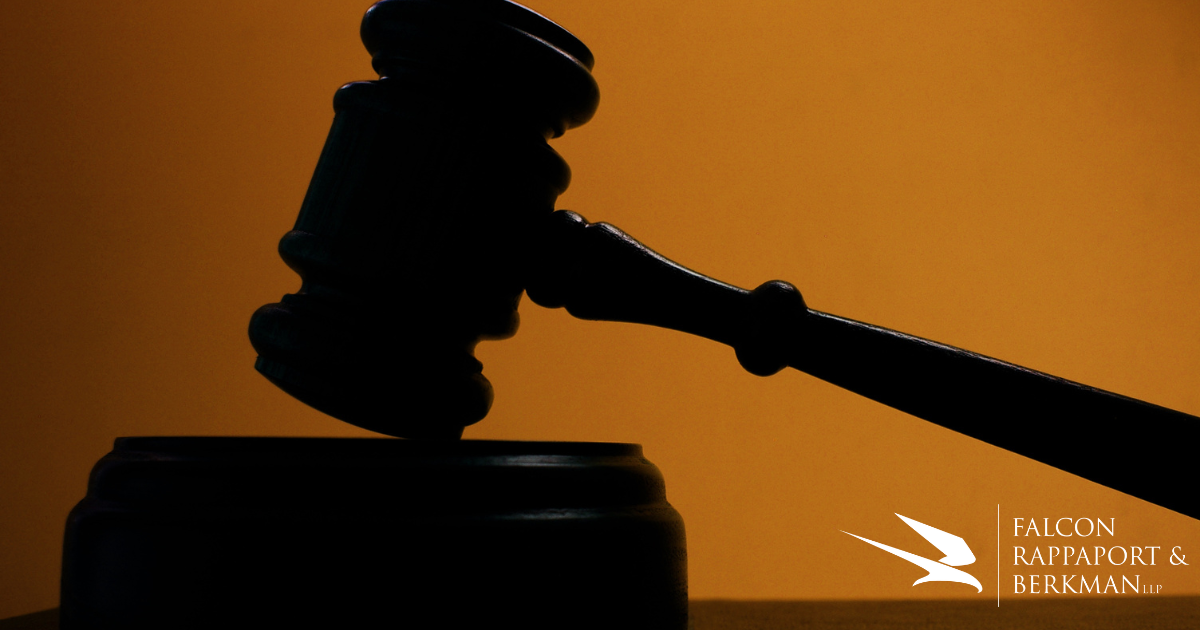Fourth Circuit Holds That Settlement of Nondischargeable Debt and Resulting Interest and Fees Owed Thereunder Are Both Nondischargeable Debts in Bankruptcy
By: Michael L. Moskowitz, Esq. and Melissa A. Guseynov, Esq.
We have written in the past about exceptions to the general rule regarding a debtor’s ability to discharge debt in bankruptcy and achieve a “fresh start.” In a recent decision of interest, the Court of Appeals for the Fourth Circuit held that a debtor may not utilize bankruptcy to discharge an obligation to pay unpaid principal under a settlement agreement requiring him to pay damages for a willful and malicious injury. The Court further held the interest and attorney’s fees owed by the debtor due to his own breach of the settlement agreement were also not dischargeable. See In re Hilgartner, Case No. 22-1762 and 22-1778 (Jan. 18, 2024).
Section 523(a)(6) (b) of the Bankruptcy Code excepts from discharge debts “for willful and malicious injury” to another. 11 U.S.C. § 523(a)(6). In this case, several years prior, after debtor assaulted the creditor, they entered into a settlement agreement, whereby debtor agreed to pay $415,000 to the creditor. After debtor failed to make the required payments, creditor sued Hilgartner to collect the balance of the amount remaining owed on the debt. Before the creditor obtained a judgment, debtor commenced a chapter 7 bankruptcy case and claimed the remaining amount due creditor, including interest and collection costs, should be discharged.
The Bankruptcy Court held that while the amount due under the settlement agreement was nondischargeable, the interest and fees owed to the creditor were dischargeable. On appeal, the District Court held that both the principal due and the interest and fees constituted nondischargeable debts under section 523(a)(6). The debtor appealed to the Fourth Circuit, which affirmed the District Court’s ruling in its January 18th opinion.
With respect to the unpaid principal due under the settlement agreement, Circuit Judge Pamela Harris, writing for the majority, relied on Supreme Court precedent to conclude it is not dischargeable. In Archer v. Warner, 538 U.S. 314 (2003), the Supreme Court held that a settlement agreement resulting from money obtained by fraud was nondischargeable. Turning to whether the interest and fees constituted a nondischargeable debt, the Court again to turned to Supreme Court precedent – Cohen v. de la Cruz, 523 U.S. 213 (1998). In Cohen, the Supreme Court determined that section 523(a) of the Bankruptcy Code includes “punitive and other related ancillary debts.” Thus, Judge Harris affirmed the interest and fees, as well as the unpaid principal, all constitute a nondischargeable debt.
Although this opinion was issued in the Fourth Circuit, and is not binding precedent in New York or New Jersey, it is important for debtors and creditors to be aware of evolving case law to understand the ability to discharge certain debts in bankruptcy and preserve and protect their rights.
Falcon Rappaport & Berkman invites you to explore how our professionals can meet your needs across our fully integrated areas of concentration. FRB’s interdisciplinary approach allows the firm to achieve unparalleled outcomes for our clients that could only be secured through proficiency in complementary areas of law. To contact any one of FRB’s professionals, please call (516) 599-0888 or submit the contact form below.
DISCLAIMER: This summary is not legal advice and does not create any attorney-client relationship. This summary does not provide a definitive legal opinion for any factual situation. Before the firm can provide legal advice or opinion to any person or entity, the specific facts at issue must be reviewed by the firm. Before an attorney-client relationship is formed, the firm must have a signed engagement letter with a client setting forth the Firm’s scope and terms of representation. The information contained herein is based upon the law at the time of publication.

